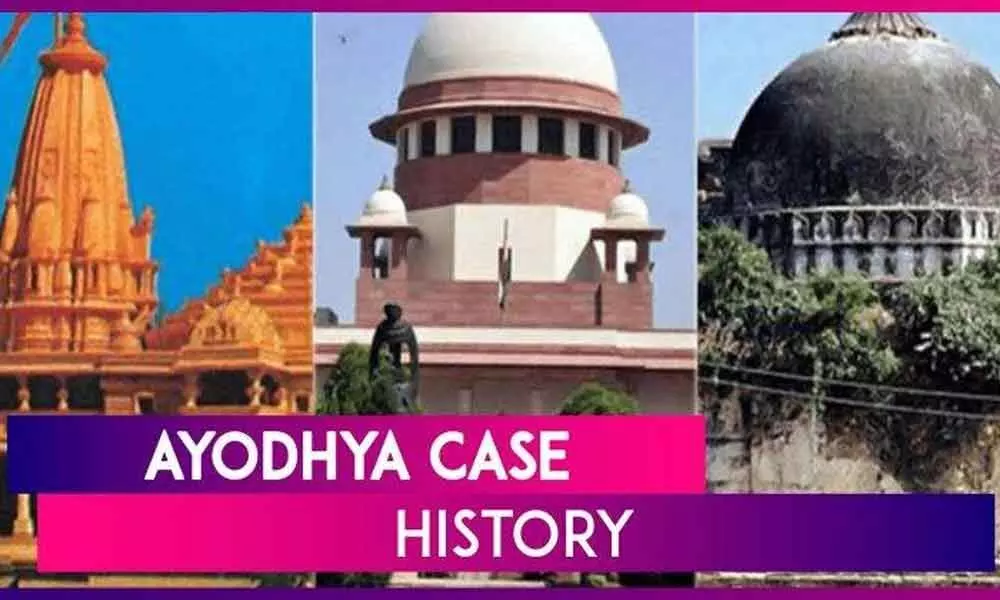Ayodhya Verdict: A timeline of the historic judgement's past

The Ayodhya land dispute is a political, historical and socio-religious debate in India that has been on for decades.
The Ayodhya land dispute is a political, historical and socio-religious debate in India that has been on for decades. The dispute is focused on a plot of land in Ayodhya, Uttar Pradesh, which is regarded among the Hindus to be the birthplace of the Hindu deity Ram.
According to some beliefs, it was originally the site of a Hindu temple that was demolished to construct a mosque known as Babri Masjid. For their part, Muslims claim that the land was titled to them and Mir Baqi built the mosque on it in 1528 on orders of the first Mughal emperor, Babur.
The modification/demolition of the temple has stood as a topic of controversy. By some accounts, some Muslims in 1949 saw an idol of Ram being placed inside what was then a mosque. Both Hindu and Muslim sides claimed ownership of the site and that led to an eventual lockdown of the area by the government.
On December 17, 1959, Nirmohi Akhara filed a suit seeking possession of the site and claimed to be the custodians of the disputed land. Following this, the Sunni Central Board of Waqf also filed a suit claiming ownership of the site on December 18, 1961.
Later, some Hindu kar sevaks on December 6, 1992, demolished Babri masjid, an action that triggered communal riots all over India, killing at least 2,000 people.
Over the years, the matter has been brought up by both groups in various courts of the country.
On September 30, 2010, the Allahabad High Court ruled that the disputed 2.77-acre land in Ayodhya should be divided into three parts among the Hindus, Muslims and the Nirmohi Akhara. The petitioners moved the Supreme Court and the apex court stayed the HC verdict.

